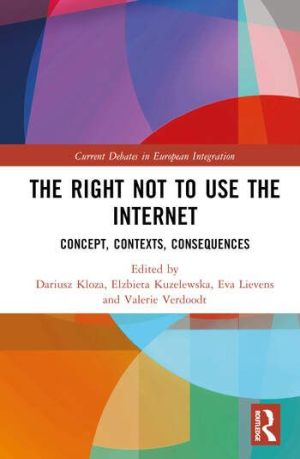
This pioneering collection addresses the prospective fundamental/human right not to use the internet and the challenges that the non-use of the internet poses for democracy.
As the internet has increasingly ceased to be a mere option and rather turned into a de facto obligation for anyone who exercises their rights or fulfils duties, these developments bring about profound ramifications for the very existence and the functioning of democracy, and therefore merit a critical reflection. With contributors from academia and legal practice from all over Europe, this edited volume offers timely critical analysis of the right not to use of the internet, at times supplemented with policy advice and postulates for law reform.
This book is of key interest to scholars and students of – predominantly – law, political science and philosophy as well as to policymakers, judges and non-governmental organisations at national, supranational and international levels.